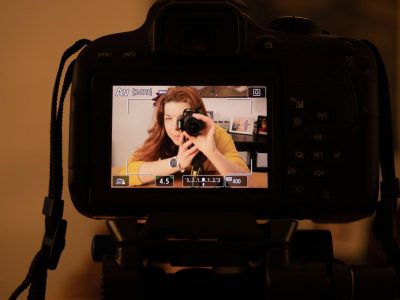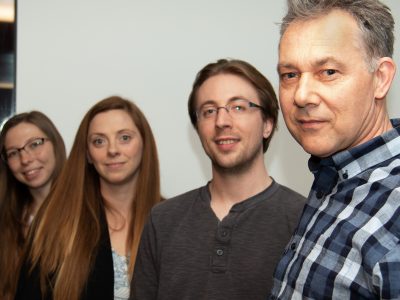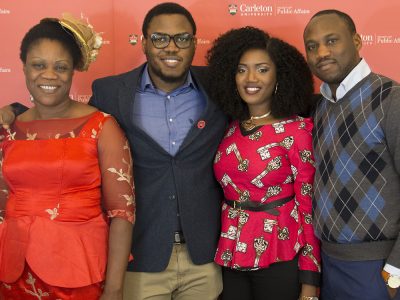An Undergraduate Research Opportunity
By Karen Kelly
Sam Davidson first tried beekeeping five years ago, when she was just starting her Bachelor of Social Work at Carleton University.
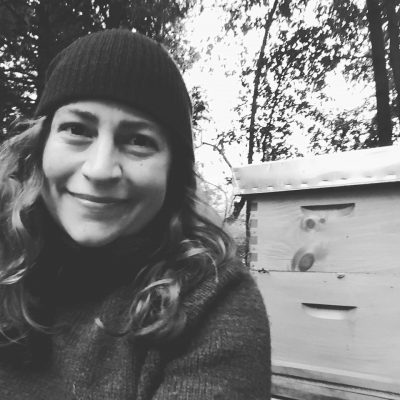
Sam Davidson
“I was terrified of bees my whole life, but also fascinated by them. I got stung a lot that first year,” she recalls with a laugh.
It wasn’t long before Davidson was combining her love of beekeeping with her interest in social work. She pursued a job placement at a Vancouver organization called Hives for Humanity, which offers therapeutic beekeeping in Vancouver’s downtown East Side.
“If you can get past the fear of bees, there is a very meditative quality to it. You have to be present and focus on what you are doing. There’s a magical quality to them,” she explains. “Through my placement, I saw the potential impact beekeeping could have on folks and I wanted to explore that further.”
As Davidson was finishing her BSW last spring, she saw an email about the Carleton University Research Opportunity, or CUROP, program for undergraduates. It employs students full-time over the summer to pursue a research project of their own, under the guidance of a faculty member. Davidson applied with a proposal to set up a voluntary beekeeping program for inmates at Collins Bay Penitentiary in Kingston, Ontario to see how it affects them mentally, physically and socially. Her project was accepted.
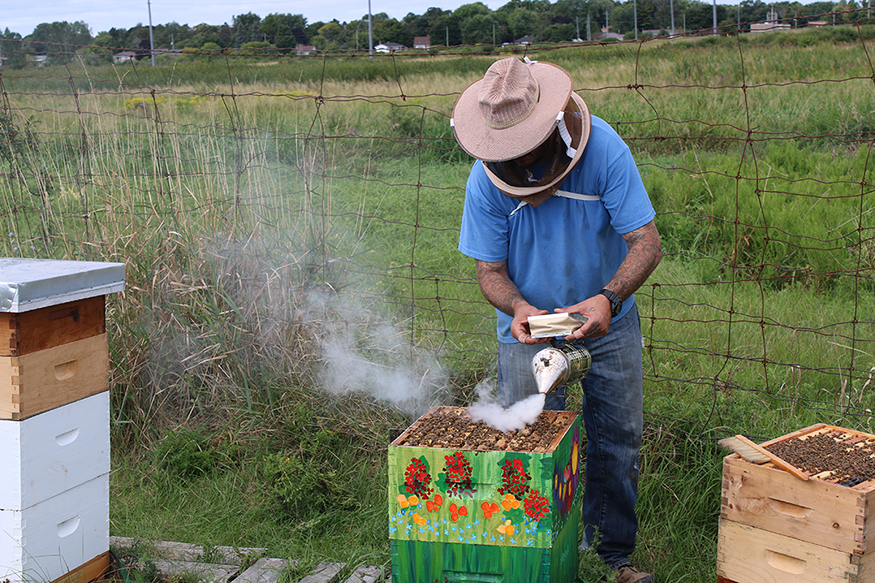
An inmate uses a smoker to calm the honey bees.
“The prison supplied the jackets and I supplied the bees and all of my beekeeping books,” says Davidson, who was supervised by Social Work Professor Melissa Redmond. “The guys were very keen: they read the books cover-to-cover and came with questions every week.”
At the end of a successful summer—with a bumper crop of honey to show for it—Davidson packed up her bees and took them home. She returned in late October to interview five of the participants about their experience in the program.
“I asked them about being incarcerated and how the beekeeping program affected their physical, social and mental health,” says Davidson, who finished her CUROP experience in Fall 2018. “I’m just analyzing the data now. While I didn’t find a lot of effects on physical health, we did see a social effect: they deepened their connections with each other.”
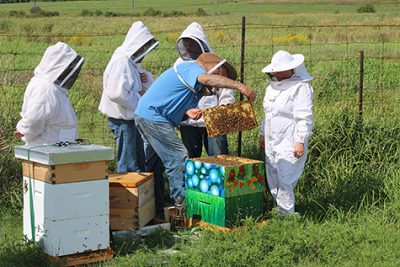
Inmates working with bee boxes at Collins Bay Penitentiary.
Sam Davidson is now pursuing a Master of Social Work degree. She’s decided to complete her field placement at the Youth Now Farm in Carlsbad Springs, Ontario, a working farm that offers a supportive environment for underprivileged youth. It will provide an opportunity for her to study the effects of beekeeping on this population, as well.
“I’m really interested in continuing to learn about the ways social work and agriculture can intersect,” she says, adding that the CUROP experience helped her strengthen her research skills. “I encourage students to apply for CUROP. If you have a passion, it can help you realize your ideas. I’m very thankful I had this opportunity.”
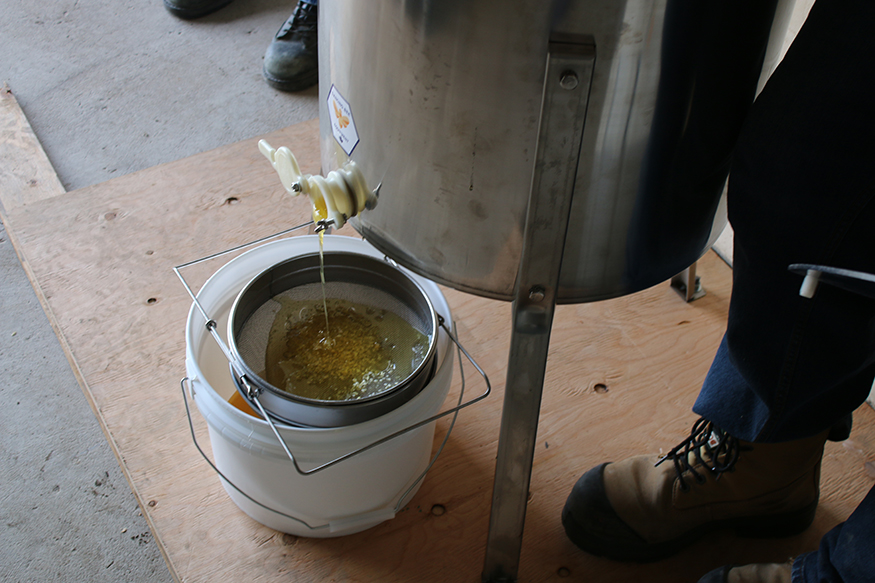
Straining a bumper crop of honey.
In addition to this project, entitled “An Explorative Study of Apiculture in Social Work,” there were six other undergraduate research projects pursued by Faculty of Public Affairs students in Summer of 2018:
“Effects of Diversity of Voices on Media Concentration in Canada” (Matthew Pelletier, Public Affairs and Policy Management)
The Development Effects or Remittances and Overseas Development Assistance on Health and Education Outcomes in Sub Saharan Africa (Erin Newman-Grigg, Public Affairs and Policy Management)
The Impact of Climate, Malaria and Political Stability on Economic Growth (Liz Marcil, Economics)
Ricardo’s Theory of Technological Unemployment for the Computer Age (Sascha Harvey, Political Science)
An Examination of Consumption Changes at Retirement (Colin Grimes, Economics)
Domestic Radicalization: Canadian Policy Reformation (Hannah Delaney, Global and International Studies)
Applications for the 2019 Carleton University Research Opportunity are being accepted until March 8th. Click here for more information.
Thursday, January 31, 2019 in Faculty Research, FPA Voices
Share: Twitter, Facebook

